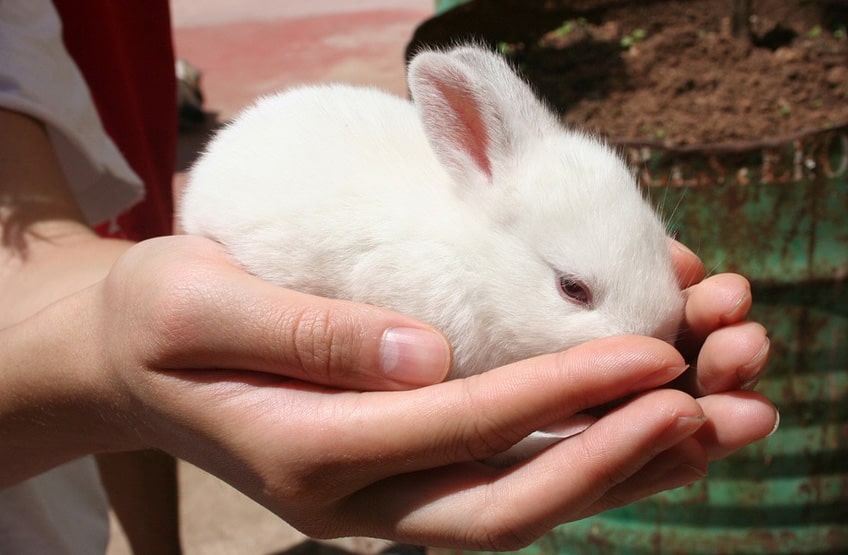
Rabbit Baby Care: A Comprehensive Guide
Introduction
Welcoming baby rabbits into your home is an exciting and rewarding experience. However, caring for these delicate creatures requires specific knowledge and attention to ensure their health and well-being. This comprehensive guide will provide you with all the essential information you need to provide optimal care for your rabbit babies.
Pre-Birth Care
- Provide a Nesting Box: A few weeks before the expected due date, provide a nesting box for the mother rabbit. Line it with soft materials such as hay, shredded paper, or towels.
- Ensure Proper Nutrition: Feed the mother rabbit a high-quality diet rich in hay, fresh vegetables, and pellets. Provide unlimited access to fresh water.
- Monitor for Signs of Labor: Watch for signs of labor, such as restlessness, nesting behavior, and decreased appetite.
Birth and Post-Birth Care
- Assist with Birth: If necessary, gently assist the mother rabbit with the birth process. Avoid pulling or handling the babies excessively.
- Keep the Nest Warm: Ensure the nesting box is warm and draft-free. Place a heating pad or hot water bottle wrapped in a towel under half of the box.
- Monitor the Babies: Check the babies daily for signs of distress, such as lethargy, cold to the touch, or difficulty breathing.
- Handle with Care: Handle the babies only when necessary, and do so gently and with clean hands.
Feeding
- Nursing: Baby rabbits rely solely on their mother’s milk for the first few weeks of life. Ensure the mother rabbit has access to plenty of food and water.
- Supplemental Feeding: If the mother rabbit is unable to nurse the babies, you may need to supplement their feeding with kitten milk replacer. Use a syringe or dropper to feed them every 2-3 hours.
- Weaning: Begin weaning the babies around 4-6 weeks of age. Gradually introduce solid foods, such as hay, pellets, and fresh vegetables.
Housing
- Appropriate Cage: Provide a spacious cage that allows the babies to move around freely. Ensure it has a solid bottom and adequate ventilation.
- Bedding: Use soft and absorbent bedding materials, such as hay, shredded paper, or fleece blankets.
- Litter Box: Place a litter box in the cage and train the babies to use it.
Health Care
- Veterinary Check-ups: Schedule regular veterinary check-ups to ensure the babies’ health and well-being.
- Vaccinations: Vaccinate the babies against common diseases, such as myxomatosis and viral hemorrhagic disease.
- Parasite Control: Regularly check the babies for parasites, such as fleas, mites, and worms. Treat infestations promptly.
- Common Health Issues: Be aware of common health issues in baby rabbits, such as diarrhea, respiratory infections, and eye infections. Seek veterinary attention if you notice any symptoms.
Socialization and Handling
- Early Handling: Handle the babies gently and regularly from a young age to socialize them.
- Interaction: Allow the babies to interact with other rabbits and humans in a supervised environment.
- Bonding: Spend time bonding with the babies by petting them, talking to them, and playing with them.
Specific Care for Different Breeds
- Dwarf Rabbits: Dwarf rabbits require a smaller cage and may need more frequent feedings due to their smaller size.
- Angora Rabbits: Angora rabbits have long, silky fur that requires regular grooming.
- Rex Rabbits: Rex rabbits have short, velvety fur that is easy to care for.
- Giant Rabbits: Giant rabbits require a very large cage and a diet high in hay and pellets.
Conclusion
Caring for baby rabbits is a rewarding but challenging experience. By following the guidelines outlined in this comprehensive guide, you can provide your furry friends with the optimal care they need to thrive and enjoy a long and healthy life. Remember to seek veterinary attention whenever necessary and consult with experienced rabbit owners or breeders for additional support.
